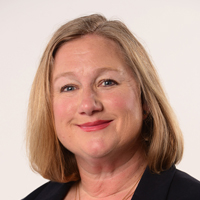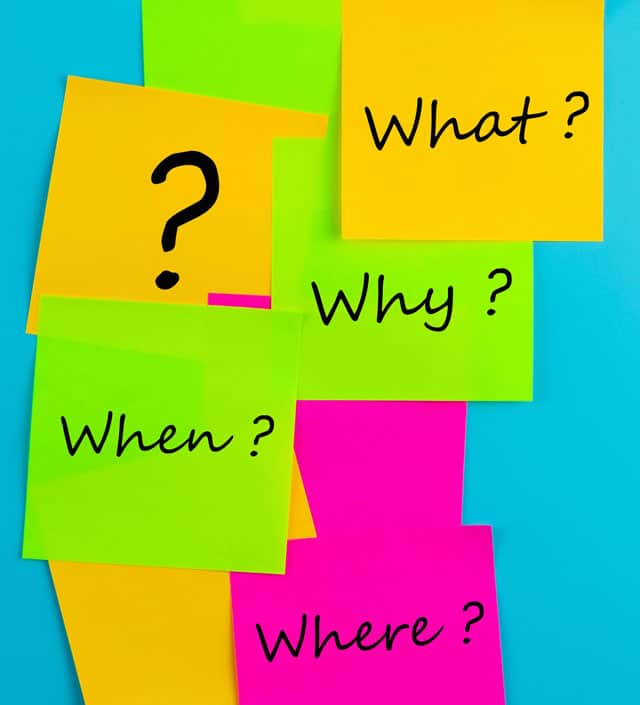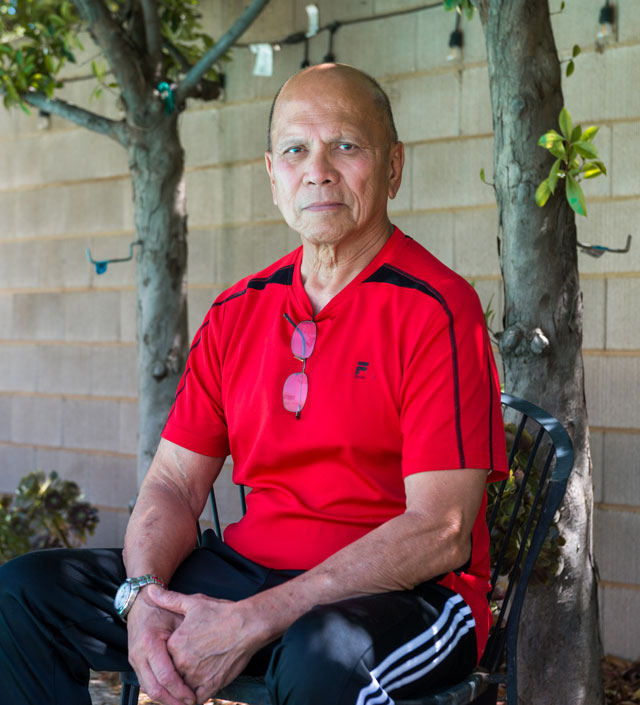The phone rang at 7 a.m. on the dot, not a normal time for a call in many households. Having grown up in a medical household, we are all used to the phone ringing at odd hours. My sister answered, then gasped and then started to cry.

We found out that a friend who had surgery for cancer five days before had passed away suddenly overnight, just shy of his 51st birthday. His widow was like a big sister to me growing up. She was a few years ahead of me on the sports teams, always kind and supportive. She was very cool and popular, best friends with all the cutest boys, homecoming queen and all those things, but always a genuinely kind and inclusive person. We mourned her loss.
At the viewing, we waited in the hot sun with over 500 people for close to three hours to pay our respects. His widow was standing separate from any family, looking glamorous in a bright orange dress. The family had requested attendees wear vibrant colors to celebrate his vibrant life, and he would have been proud.
Seeing her there, standing so bravely, reduced me to tears. “There, but for the grace of God, go I.” It could have been any of us, widowed too soon. Like me, they met each other and married later in life; 10 years was not enough time together. At the eulogy, his brother described them as a “power couple who took over any room then entered.” It’s true: they were both engaging and sharp-witted and joyful, the kind of couple who draws everyone in at a gathering. She reminded me of the swan who had lost his mate.
Grateful to help
Her brother is an attorney, so I knew she had help and support. But I also offered my assistance since I work with many widowed women and hoped she could trust me. I was thrilled when she sent me a text saying she was “overwhelmed” and could use some guidance, so we set up a meeting. One of my very early clients was a 29-year-old widow and I have many older widowed clients, some of whom were married when they started working with me. This time was different because I was helping a friend, but the wisdom I learned in past years was so relevant and I was grateful to be able to help her.
I was blown away by how much she had already tackled, the decisions she had made, and how well she was doing. His surgery to remove an invasive tumor was successful, but she knew that probably they had five to 10 years left together so had started to have conversations about financial matters.
However, many things had not been finished and she was very honest about this. They had wills drawn up but never signed them, so technically he died intestate. Without her being named as his executrix, it has been harder to get things accomplished.
Dying intestate means different things in different states and it impacts each situation uniquely. In my friend’s case, many of their assets will pass through a will substitute, such as a beneficiary form, which is commonly used with retirement plans and life insurance policies. It is important to note that if the beneficiary form and the will don’t agree, the beneficiary form will supersede the will. In a more complicated estate, dying intestate often means the estate has to be probated. It can be a time-consuming and expensive process. In many states, estate planning attorneys recommend putting assets into a revocable trust to help reduce the need for probate.
As we spoke, my friend shared her emotions. “It comes in waves. I am so sad and miss him so much, and then so mad at him for leaving me and having to face all this on my own.”
She has had problems with transferring the lease on his car since she was not named on it. They have insurance coverage with different companies, and she has no idea why. She thought she had his passwords, but not all of them work and some places won’t allow her to access them until the estate is settled, which may take a while.
Like most widows, she is making lots of phone calls to transfer accounts and get access to other accounts. She is working with an estate planning attorney to help settle the estate and get her estate planning documents updated for herself and her new life situation. She just wishes they had done more while he was alive.
‘Do this now’
She said she has been telling all her friends, “Do this now. Get your house in order. Know where things are, have the hard conversations.”
We talked about how these conversations about death or illness can be difficult to have. But what makes them more challenging is having them in the middle of an illness, or when you are grieving. With older clients, they see their friends passing away and it makes them realize that it’s important and that it MIGHT happen to them, too. (Sometimes I must remind people that it’s not “IF” you die but “WHEN.”) It is so painful to contemplate our death, especially when someone close in age to you passes. I had not attended the funeral of someone so young in decades, and it was a harsh reminder that none of us knows how much time we have.
In our meetings, she would occasionally burst into tears, and then gain composure and sometimes grow angry. My experience with grief is that there is no right or wrong way to grieve, but it is important to feel your feelings, whatever they are. I was glad she felt she could share these raw emotions with me and so grateful to be able to be a listening ear and to guide her as needed.
As we talked through her concerns, I could not help but consider whether I have these pieces in place, and remember what I need to know about the last wishes for my parents. Working with an old friend felt so much more personal than with other clients, in part because of our close ages but more because of our shared history. As a couple, they felt untouchable — How could HE possibly die? He was so full of life! It was evident just how many lives they have touched with their joy.
While the importance of estate planning documents is always something I emphasize with my clients, it is a good reminder that they are needed for ALL clients, not just the ones who are older. As a good reason for younger families to get their estate planning done, I use the fact that a will is where you establish guardianship for your minor children. I think it’s also important for advisors to check that both parties know where to get answers to financial questions, passwords, or anything they might need to carry on without their partner. It’s also important to establish who the survivor can call to help them, including you, the financial advisor.
Personally, I find the estate planning process to be very comforting. It helps to know that my wishes can be carried out, but it’s important to remember that estate planning is really not for the dead, but for the living.
Lauren Gadkowski Lindsay is a fee-only CFP licensee at Beacon Financial Planning in Houston, Texas. She can be reached at lauren@bfpcc.com.







